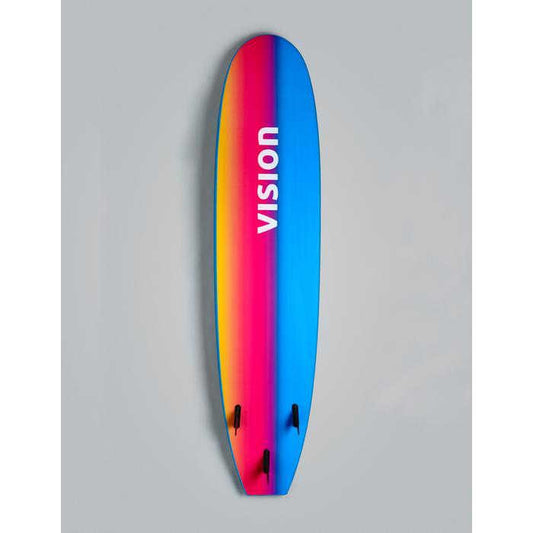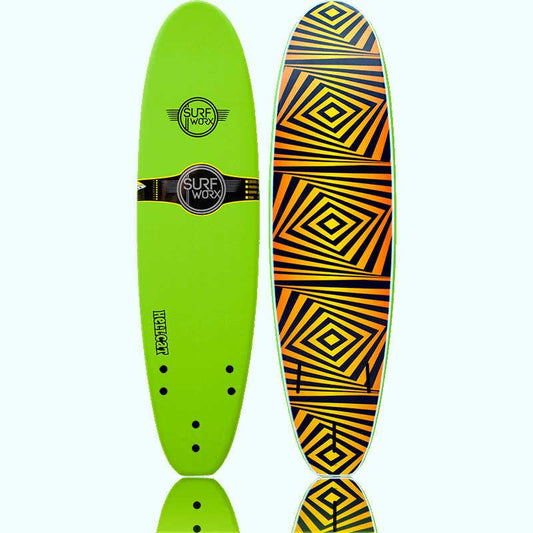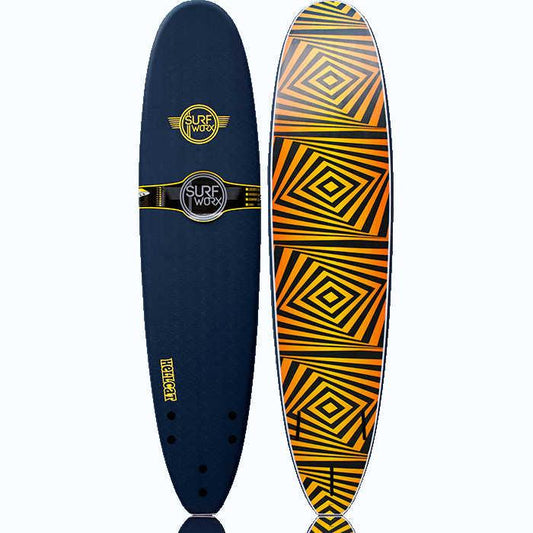Surfing and Wildlife | Poole Harbour Watersports
Ella DavisShare
Surfing and the Wildlife
Surfing is an inherently dangerous activity, which is why it gives such a thrill. Not only can you be eaten by sharks and impaled by surfboards, but you are playing amongst forces that can quite literally crush and drown you. Add a bunch of other surfers to the mix and you’ve got almost unlimited possibilities for disaster.
In this blog I am going to talk about the risks when surfing in wildlife populated areas and how to stay safe when in the water. This blog will also link environmental charities giving you top tips in how look after our oceans and coastal lines.
Marine Life And Sea Beds
When surfing there are factors to consider especially when in populated wildlife areas...The danger sharks impose is obvious but there are just as dangerous marine life such as seals, snakes (sea ones) urchins, jellyfish and stingrays. So always remember to do your research before going out in a new place and keep your wits about you.
Another factor to consider are seabeds, they can sneak up on you especially if a wave pounds on a sandy bottom seabed it will feel like landing on concreate! Rock reefs cause more harm as they are harder thus causing further injuries,..the absolute worst are coral reefs!...they will feel like razor blades going into you and will leave long term issues such as infections months after the accident. There will always be danger when you are out in the ocean, don't let it put you off just be careful and you should be able to enjoy the sport!
WHAT IS AN MPA?
Marine Protected Areas help support conservation of marine habitats and species. MPA's are a globally recognized tool used to support the resilient ecosystems - they help protect both characteristic habitats present in UK waters as well as some of its more charismatic habitats and species.
UK seas are home to a great variety of marine habitats and species; many of which are considered to be of European and international conservation importance. This includes vulnerable marine ecosystems such as underwater mountains called seamounts, cold-water coral reefs and deep-sea sponge aggregations. Topographic features such as reefs and sandbanks elevated from the seafloor provide a habitat for species, which in turn provide a food source for commercially important fish species, seabirds and marine mammals.
The JNCC's website https://jncc.gov.uk/our-work/marine-protected-area-mapper/ informs people of current issues and help raise awareness to ensure safeguarding of our marine environment and the benefits it provides for our future generations. They also offer downloadable documents on how human activities (such as surfing) impact our marine protected areas and how we can keep it safe.
Surf Breaks
Surf Breaks (a rideable wave that breaks in one direction constantly) provide many ecosystem services and are also a great importance to the surfer community. Unfortunately all around the world surf breaks are threatened by a variety of factors due to climate change, coral reef decline (important ecosystems for surf breaks in the tropics), rising sea levels and ocean addification and warming.
Anthropogenic factors such as coastal development, marine pollution, oil spills and coastal erosion are all contributing to the decline as well. Charities have started raising awareness on the environmental issues our oceans face...such as Surfer Foundation and Surfers against Sewage they are helping inform people on current problems in the sea.
Surfrider Foundation And Surfers Against Sewage
Surfrider Foundation is a globally recognized charity dedicated to the protection and enjoyment of the worlds oceans, waves and beaches. It is a non for profit who aim to raise money and awareness meaning their money raised is not for the financial benefit of the company. Their mission is about preventing plastic pollution, in hopes to minimize the impact this has on our marine environment. The brand continuously works on campaigns ensuring the ocean is healthy, pollution is out of the water and beaches are clean. Currently they have 153 active campaigns which you can find on their website. https://www.surfrider.org/mission
Surfers Against Sewage is another charity preserving coastal beaches and natural shorelines...though their main focus is stopping sewage from entering our oceans and polluting it, inevitably destroying marine wildlife but also making it unsafe for surfers to go out in the water. They are a UK based brand founded by some Cornish surfers in 1990. You can even check your water quality through an app they created where it will notify you if there has been a sewage outbreak. In hopes to keep everyone safe...you can also report any sewage you come across too! https://www.sas.org.uk/
In Poole Harbour, all businesses and locals care deeply for our ocean, the marine wildlife and the quality of our shoreline. As such, we all try our best to look after it and spread awareness on our platforms of what people can do to help.
For any more information on how to help or information on this blog, please feel free to message us at info@pooleharbour.co.uk .









